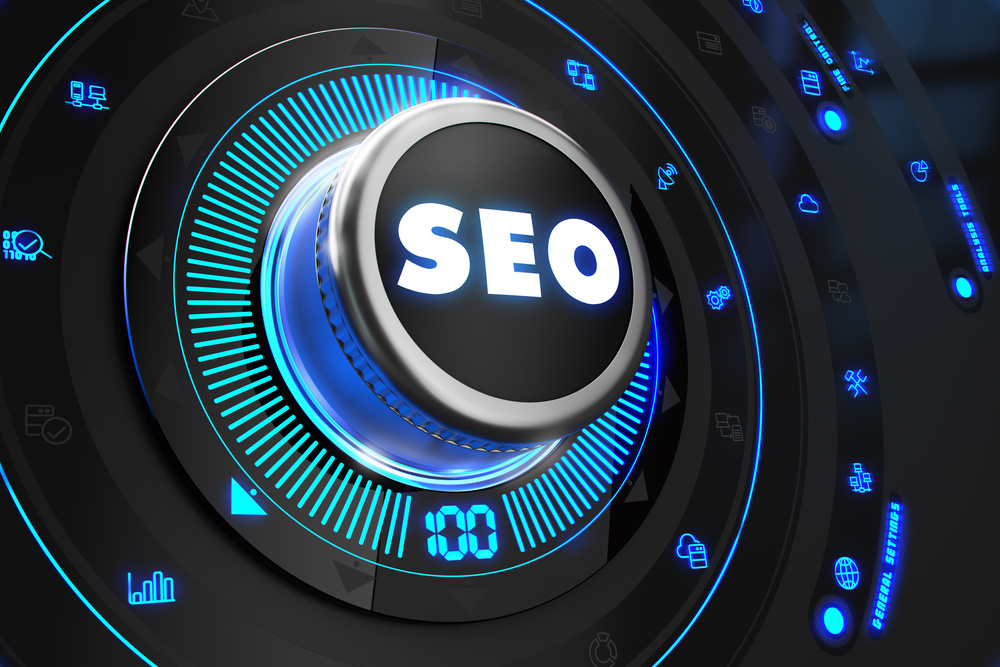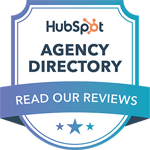Welcome to the world where your marketing runs itself, and every customer feels like they’re your only customer. That’s the magic of B2B marketing automation. It’s like having a super-smart robot sidekick that knows what your clients need and when they need it.
Why should you care? Because it’s all about making things easier and ensuring everyone gets a personal touch. With the right tools, you can effortlessly send the perfect messages and keep track of all the nitty-gritty details without breaking a sweat, relieving you of the marketing burden.
Read on to learn how to pick the right strategy, tools, and the most competent platforms to make your business shine.
B2B Marketing Automation - Why You Need This
Why is automation crucial in B2B marketing? It’s simple: efficiency and personalization.
Automation tools empower businesses to deliver targeted messages at scale, ensuring that no lead is left unattended and every client feels heard. From streamlining mundane tasks to providing insightful analytics, automation platforms are not just tools; they are the architects of a strategy that can propel your business to new heights.

As businesses strive to streamline their operations, reach their target audience more efficiently, and drive growth, the strategic implementation of marketing automation has become a game-changer.
What is B2B Marketing Automation?
B2B marketing automation refers to the use of software and technology to automate various marketing tasks and processes to enhance efficiency, improve lead generation and nurturing, and ultimately drive revenue growth. This approach is particularly relevant in the B2B landscape, where the sales cycles are often more complex, and the decision-making process involves multiple stakeholders.
As businesses have recognized the need for more personalized, targeted, and data-driven marketing strategies, the demand for robust automation solutions has increased. Today, B2B marketing automation platforms offer various functionalities, from lead capture and nurturing to behavioral analysis and cross-channel campaign management.
The Strategic Importance of Automation in B2B Marketing

Aligning automation efforts with broader business objectives is crucial for achieving sustainable growth and success. When automation is seamlessly integrated into the overarching marketing strategy, B2B organizations can:
- Enhance lead generation and nurturing: Automated lead capture, segmentation, and nurturing workflows enable businesses to identify, engage, and convert high-quality leads more efficiently.
- Optimize the sales process: Automation can streamline the sales pipeline by automatically qualifying leads, scheduling appointments, and providing real-time insights to the sales team.
- Improve customer engagement: Personalized, automated communication across multiple touchpoints helps build stronger customer relationships and improve retention.
- Increase operational efficiency: By automating repetitive tasks and workflows, B2B marketers can free up valuable time and resources to focus on more strategic initiatives.
- Leverage data-driven insights: Marketing automation platforms offer robust analytics and reporting capabilities, enabling data-driven decision-making to refine and optimize marketing efforts.
Comprehensive Guide to B2B Marketing Automation Tools
Choosing the right B2B marketing automation tool depends on your business’s needs, budget, and marketing goals. A range of robust software solutions populates the B2B marketing automation landscape, each with unique features and capabilities.
Overview of Leading B2B Marketing Automation Software
HubSpot and Marketo Engage offer comprehensive suites for larger enterprises, while ActiveCampaign and Versium Reach may be more suitable for businesses focusing on email marketing and data-driven audience targeting, respectively. Evaluate each tool’s features against your requirements to select the best fit for your marketing strategy.
- HubSpot: A comprehensive CRM and inbound marketing platform known for its all-in-one marketing suite, offers a range of tools to automate and manage marketing campaigns, such as tools for lead generation, lead nurturing, email marketing, and more.
- Marketo Engage: Part of the Adobe Experience Cloud, Marketo Engage focuses on account-based marketing, lead management, and analytics.
- ActiveCampaign is a versatile automation platform that combines email marketing, sales automation, and CRM for a streamlined workflow.
- Versium Reach is a data-driven marketing automation solution that leverages predictive analytics and audience segmentation to identify and engage high-value prospects.
Key Features and Functionalities to Look For
When evaluating B2B marketing automation tools, consider the following features:
- Email marketing: Ability to create, automate, and track email campaigns.
- Lead management: Tools for capturing, scoring, and nurturing leads.
- CRM integration: Seamless integration with CRM systems for better alignment with sales.
- Analytics and reporting: Detailed insights into campaign performance and customer behavior.
- Social media management: Capabilities to manage and automate social media interactions.
- Personalization: Features for tailoring content and campaigns to individual prospects.
Automation Tools Comparison
The table below compares the tools mentioned above based on the key features and functionalities:
|
Feature / Tool |
HubSpot |
Marketo Engage |
ActiveCampaign |
Versium Reach |
| Email Marketing | ✅ | ✅ | ✅ | ❌ |
|
Lead Management |
✅ | ✅ | ✅ | ✅ |
| CRM Integration | ✅ | ✅ | ✅ | ❌ |
| Analytics | ✅ | ✅ | ✅ | ✅ |
| Social Media | ✅ | ✅ | ✅ | ❌ |
| Personalization | ✅ | ✅ | ✅ | ✅ |
When selecting a B2B marketing automation tool, consider factors such as integration capabilities, user-friendliness, reporting and analytics, and pricing to ensure the solution aligns with your specific business needs and goals.
| Platform | Key Features | Strengths |
| Marketo Engage |
|
|
| ActiveCampaign |
|
|
| HubSpot |
|
|
| Versium Reach |
|
|
Leveraging B2B Marketing Automation Platforms for Scaling Your Efforts
From automated email campaigns and dynamic lead scoring to real-time analytics and predictive insights, these platforms offer a comprehensive suite of tools to help you efficiently manage and optimize your entire B2B marketing funnel.
Moreover, integrating these platforms with your CRM, CMS, and other essential business systems can further enhance the flow of data and improve the overall effectiveness of your marketing efforts.

Here’s what you should do:
- Conduct a thorough evaluation of your business needs, marketing goals, and existing technology stack.
- Align your automation strategy with the unique capabilities of each platform to create a customized solution.
- Streamline your lead generation, lead nurturing, and customer retention processes through automation.
- Leverage features such as automated email campaigns, dynamic lead scoring, and real-time analytics.
- Integrate your automation platform with your CRM, CMS, and other essential business systems to enhance data flow and improve marketing effectiveness.
- Prioritize features that align with your growth objectives, such as advanced segmentation, multi-channel campaign management, and AI-powered personalization.
- Transform your B2B marketing into a well-oiled machine, seamlessly delivering personalized experiences, driving higher engagement, and achieving sustainable business growth.
Implementing B2B Marketing Automation: A Step-by-Step Approach
The foundation of a successful B2B marketing automation strategy lies in the planning and setup phase. This is where you'll lay the groundwork for a seamless and efficient automation system that aligns with your business goals and target audience.
First and foremost, it's crucial to identify your specific marketing objectives and the key performance indicators (KPIs) you'll be tracking.
Are you aiming to generate more qualified leads, nurture your existing customer base, or streamline your sales process? You can create laser-focused automation workflows that deliver measurable results by clearly defining your goals.
Next, it's time to integrate your CRM and other essential tools with your automation platform. This integration ensures a unified flow of data, allowing you to create personalized campaigns, segment your audience, and track the performance of your marketing efforts with precision.
Adopting a B2B marketing automation solution requires a well-planned and structured approach. Here's a step-by-step guide to help you successfully implement and integrate automation into your marketing efforts:
1. Define Your Marketing Objectives and KPIs
Clearly define your specific marketing goals, such as generating more qualified leads, nurturing your existing customer base, or streamlining your sales process. Establish the key performance indicators you'll be tracking to measure the success of your automation efforts.
2. Assess Your Current Processes and Workflows
Identify the areas of your marketing and sales operations that could most benefit from automation and map out the existing processes and pain points.
3. Choose the Right Automation Platform
Based on your specific requirements, evaluate and select the B2B marketing automation platform that offers the features, integrations, and scalability to support your business needs.
4. Integrate Your Existing Tools and Systems
Ensure seamless integration between your automation platform and other vital systems, such as your CRM, website, and customer data sources.
Seamlessly integrate your CRM system with your automation platform to ensure a unified data flow. Connect essential tools like email marketing, social media, and analytics platforms to create a comprehensive, data-driven automation ecosystem.
5. Develop Automation Workflows and Campaigns
Design and build automated workflows and campaigns that align with your buyer's journey, nurturing leads and driving conversions.

Design automation workflows that cater to your target audience's unique needs and preferences. Leverage customer data to create highly personalized touchpoints, content, and messaging throughout the buyer's journey.
6. Continuously Monitor and Optimize
Review the performance of your automated processes regularly, analyze the data, and make necessary adjustments to improve the effectiveness of your marketing efforts.
B2B Marketing Automation Examples and Best Practices
With your automation workflows set up and your tools integrated, it's time to dive into the best practices that will help you maximize the impact of your marketing automation efforts.
Focus on Personalization and Relevance
- Create highly personalized and relevant content, offers, and messaging based on your collected data.
- Tailor your automation campaigns to your customer’s needs and preferences to foster deeper engagement and drive conversion.
Continuously Optimize and Refine
- Regularly review your automation workflows and analyze the performance data.
- Adjust and enhance your automation processes to stay ahead of the curve and deliver the best possible results.
Measure and Analyze Performance
- Establish clear metrics and KPIs to track the effectiveness of your automation campaigns.
- Utilize data-driven insights to make informed decisions and continuously improve your automation strategy.

Successful B2B marketing automation implementation can yield impressive results. Here are some best practices to inspire your automation journey:
- Lead nurturing campaigns: Automated email drip campaigns that provide valuable content and nurture leads through the sales funnel.
- Behavioral triggers: Triggering personalized messages based on specific user actions, such as visiting a pricing page or abandoning a shopping cart.
- Account-based marketing (ABM): Leveraging automation to create highly targeted, account-specific campaigns for your highest-value prospects.
- Customer onboarding: Automating the onboarding process to ensure a seamless and engaging experience for new customers.
- Predictive lead scoring: Using machine learning and data analysis to identify and prioritize the most promising leads for sales outreach.
B2B Marketing Automation Case Study
Ceros, a provider of interactive content design tools, faced challenges as it scaled from a single product to a multi-product suite. Their "volume over value" approach to prospecting had led to disjointed systems, lackluster productivity, and a lack of customer insight for their sales team.

By consolidating onto HubSpot's Sales Hub, Ceros could streamline their prospecting, empower reps with deeper customer intelligence, and drive more relevant conversations. The centralized platform enabled Ceros to identify high-value opportunities, automate lead follow-up, and accelerate deals through the pipeline.
As a direct result, Ceros experienced a 180% increase in generated deals and an impressive 18%+ average growth in SQL leads. This was achieved while reducing lead response time to under 5 minutes. Ceros' strategic shift to a data-driven prospecting approach, facilitated by HubSpot, enabled them to scale their business efficiently and enhanced their ability to deliver a superior customer experience.
B2B Marketing Automation Strategy
Now that you've mastered the basics of B2B marketing automation, it's time to take your strategy to the next level. Developing a robust automation strategy that aligns with the different stages of the buyer's journey is the key to unlocking the true power of this transformative approach.

From lead generation and nurturing to sales enablement and customer retention, each stage of the buyer's journey requires a tailored automation strategy. Integrating your automation efforts across these touchpoints creates a frictionless experience that guides your prospects to conversion and beyond.
Lead Generation and Nurturing
- Leverage automation to attract and capture high-quality leads through targeted campaigns and lead magnets.
- Implement lead nurturing workflows to guide prospects through the sales funnel and convert them into loyal customers.
Sales Enablement
- Automate sales-related tasks, such as lead assignment, follow-up sequences, and proposal generation, to empower your sales team.
- Provide your sales reps with real-time data and insights to optimize their outreach and close more deals.
Customer Retention and Advocacy
- Automate post-purchase communications, cross-selling and upselling, and customer feedback collection to enhance the client experience.
- Foster brand loyalty and turn satisfied customers into advocates through targeted automation campaigns.
Developing a robust B2B marketing automation strategy is crucial for achieving sustainable growth and success. This strategic approach should encompass the following key elements:
1. Alignment with Business Objectives
Ensure that your automation efforts align with your overall business goals, whether increasing revenue, improving customer retention, or enhancing operational efficiency.
2. Buyer's Journey Mapping
Thoroughly understand your target customers' buying journey stages and create automated processes to support and nurture them at each stage.
3. Personalization and Segmentation
Leverage the power of automation to deliver highly personalized and targeted communication based on specific customer attributes and behaviors.
4. Continuous Optimization
Regularly review and optimize your automation workflows and campaigns, using data-driven insights to refine your approach and achieve better results.
5. Integration and Collaboration
Foster seamless integration between your automation platform and other key business systems while encouraging cross-functional collaboration between marketing, sales, and customer success teams.
Future Trends in B2B Marketing Automation
As the world of B2B marketing continues to evolve, it's crucial to stay ahead of the curve and prepare for the next wave of automation innovations. From the rise of artificial intelligence (AI) and machine learning to the growing importance of predictive analytics, the future of B2B marketing automation is poised to be exciting and transformative.
Emerging trends and technologies shaping the future of B2B marketing automation:
1. Artificial Intelligence and Machine Learning
Advancements in AI and ML will enable more sophisticated lead scoring, predictive analytics, and personalization capabilities within marketing automation platforms.
- AI-powered automation will enable more intelligent lead scoring, personalized content generation, and predictive analytics.
- Machine learning algorithms will continuously optimize and refine your automation workflows for maximum efficiency and effectiveness.
2. Conversational Marketing
The rise of chatbots and virtual assistants will revolutionize the way B2B companies engage with their customers, offering real-time support and personalized experiences. Conversational marketing leverages AI-powered automation to enable intelligent lead scoring, personalized content generation, and seamless customer interactions.

- Conversational AI-powered chatbots that can handle complex customer inquiries and provide instant, personalized responses.
- Virtual assistants can guide customers through purchasing, answering questions, and providing recommendations.
- Integrations between chatbots/virtual assistants and marketing automation platforms to streamline lead generation and nurturing.
3. Integrated Customer Experience
Businesses will increasingly seek to unify their marketing, sales, and customer success efforts through seamless, end-to-end automation solutions.
- Connecting marketing, sales, and customer service data within a single platform to provide a 360-degree view of the customer.
- Automating hand-offs between marketing, sales, and customer success teams to ensure a consistent, personalized experience.
- Leveraging automation to align and optimize the customer journey across multiple touchpoints and channels.
4. Predictive Analytics and Forecasting
By leveraging predictive analytics, businesses can proactively identify potential leads, optimize their marketing campaigns, and allocate resources more effectively.
- Sophisticated data analysis and predictive models will help you anticipate customer behavior, identify high-value opportunities, and make data-driven decisions.
- Automation will be crucial in collecting, organizing, and interpreting the massive amounts of data required for accurate forecasting and strategic planning.
5. Privacy and Data Governance
As data privacy regulations continue to evolve, B2B companies will need to prioritize responsible data management and transparency. Implementing robust data governance policies and procedures, such as data anonymization and pseudonymization techniques, is crucial to protecting customer information.
Additionally, providing clear information about data collection and usage and empowering customers to control their data will be critical differentiators for B2B organizations navigating the shifting privacy landscape.
- Ensuring compliance with regulations like GDPR and CCPA through robust data governance policies and procedures.
- Implementing data anonymization and pseudonymization techniques to protect customer information.
- Providing customers with clear information about data collection and usage and allowing them to control their personal data.
6. Omnichannel Automation Integration
As B2B buyers increasingly engage with companies across multiple touchpoints and channels, businesses seek to unify their marketing, sales, and customer success efforts through seamless, end-to-end automation solutions.
This trend toward omnichannel automation integration allows organizations to connect data from various sources, align teams, and optimize the customer journey for a personalized and consistent experience.
- The seamless integration of automation across multiple channels, such as email, social media, and mobile, will create a truly cohesive and personalized customer experience.
- Automation will facilitate the smooth coordination and synchronization of marketing efforts across various touchpoints, ensuring a consistent brand message and optimal customer engagement.
Embrace the Power of B2B Marketing Automation
Unleashing the full potential of B2B marketing automation is a game-changing opportunity that no forward-thinking business can afford to miss. By implementing a strategic, data-driven, and personalized approach to automation, you'll streamline your marketing efforts, boost your efficiency, and deliver an unparalleled customer experience that will leave your competitors in the dust.








